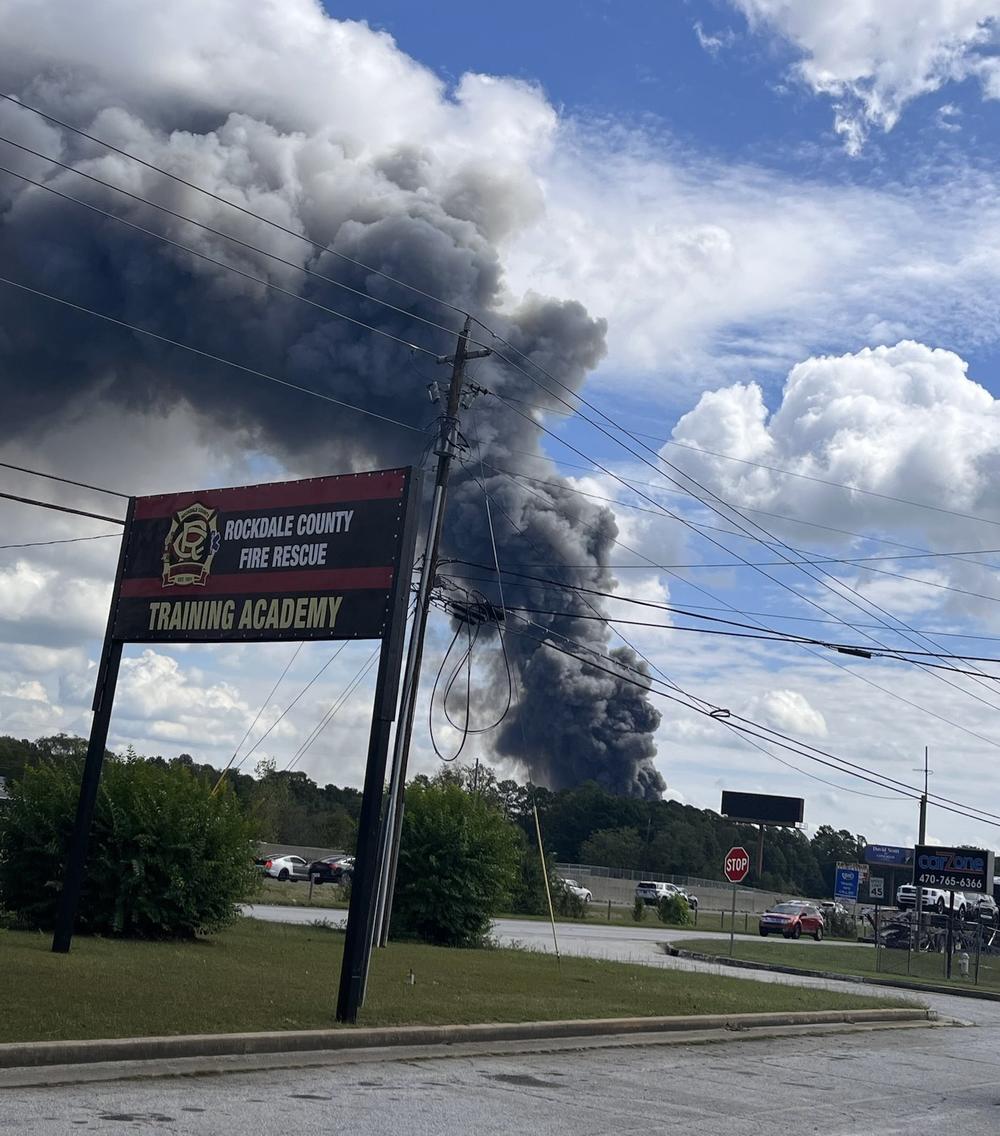
Caption
Some residents east of Atlanta were evacuated and others told to shelter in place after a fire at a chemical plant Sept. 29, 2024.
Credit: Rockdale County via X

Some residents east of Atlanta were evacuated and others told to shelter in place after a fire at a chemical plant Sept. 29, 2024.
A giant plume of heavy fog hangs in the air after a fire at a chemical plant Sunday in Conyers, which is about 30 miles east of Atlanta.
The county’s Emergency Management Agency asked roughly 17,000 residents living between Sigman Road and Interstate 20 to evacuate, director Sharon Webb said. The agency also sent an alert to people living neighboring Newton County.
All residents of Rockdale County were strongly advised to bring pets inside, shelter in place with windows closed, air conditioning off and ceiling fans on.
All warnings and advisories expired by Monday, but Rockdale County schools closed, and Gwinnett County schools canceled outdoor activities for the day.
BioLab, a manufacturer of pool and spa treatment supplies, has not confirmed which chemicals were involved, but state and federal agencies revealed chlorine, a toxic gas with corrosive properties.
A fire at the same BioLab plant temporarily closed I-20 in September 2020.
Chlorine helps keep swimming pools clean and healthy, but even at low concentrations, chlorine has the potential to cause serious harm to the hair, skin, and eyes, according to the Centers for Disease Control and Prevention.
Chlorine has also been used as a chemical warfare choking agent.
Around 5 a.m., a malfunctioned sprinkler head at BioLab’s plant “came in contact with a water-reactive chemical and produced a plume,” county officials posted on the county website.
Sodium hypochlorite, which is a component of commercial bleaches, cleaning solutions, and disinfectants for drinking water and wastewater purification systems and swimming pools, releases chlorine gas when it contacts acids, according to the CDC.
Chronic exposure, usually in the workplace, could corrode teeth. Multiple exposures to chlorine have produced flu-like symptoms and a high risk of developing reactive airways dysfunction syndrome (RADS). While chlorine has not been classified for carcinogenic effects, the association of cigarette smoking and chlorine fumes may increase the risk of cancer.
There are no specific medical tests to determine whether you have been exposed to chlorine gas, and treatment involves supporting the respiratory system.
Symptoms may be apparent immediately or delayed for a few hours.
Rapidly changing blood pressure and an irregular heartbeat signify severe exposure, and cardiovascular collapse may occur from lack of oxygen, according to the CDC.
Signs of pulmonary edema, fluid buildup in the lungs, show up about two to four hours a moderate exposure and 30 to 60 minutes following a severe exposure.
Children may be more vulnerable to corrosive agents than adults because of the smaller diameter of their airways.